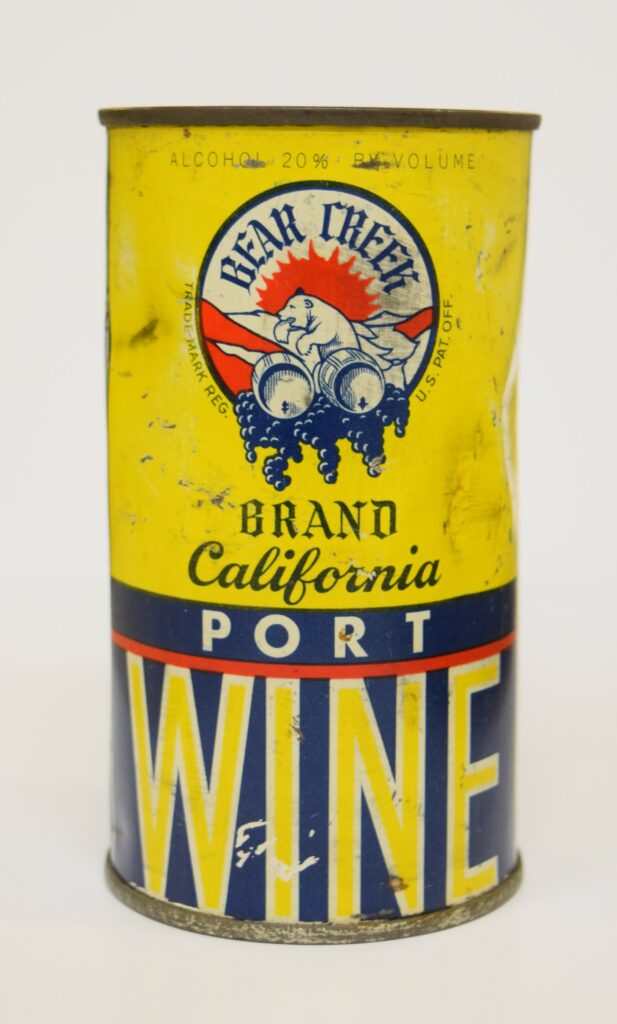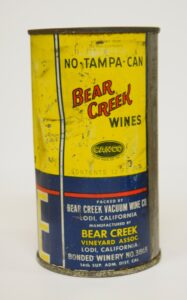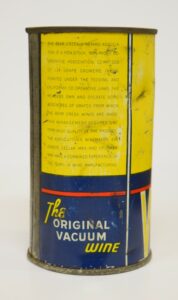Connect
Receive email updates on our exhibitions, events and more



The concept of wine in a can is nothing new. After prohibition ended in 1933, wineries began experimenting with canned wine to compete against the rival beer industry. The first canned wines were sold in 1935. They were flat-top steel cans that were difficult to open because they required a church key opener to punch holes in the top.
One of the first canned wines was the Acampa Brand California Muscatel produced by Lodi’s Acampo Winery. Other local canned wines included, Vin-Tin-Age brand from Elk Grove which canned Muscatel, Port, Sherry, and Tokay wines. In 1936, Lodi’s Bear Creek Vineyards began producing four canned wines under their Bear Creek brand – Muscatel, Angelica, Port, and Sherry. Roma Wine Company soon followed with their own canned Muscatel wine. These wines were all fortified, containing about 20% alcohol by volume.
The idea of canned wine was short lived. The poor quality and acidic nature of the wines broke down the protective inner coating of the can. This allowed the wine to come into contact with the steel can, affecting its flavor. However, many people wrongly blamed the cans rather than the wine itself for causing these problems.
Over the next several decades, wineries attempted to create the perfect canned wine. It wasn’t until 2004, when Niebaum-Coppola’s Sofia Mini Blanc de Blancs sparkling wine started the current trend of canned wines in the United States. Canned wines are especially popular with young adults. The cans are also easier to recycle than glass bottles and are perfect for the beach, camping, or wherever glass containers are discouraged. Today, there about 235 brands of canned wines on the market, making it an estimated 211.4 million dollar industry. Locally produced canned wines include Michael David Winery and Woodbridge by Mondavi.
Pictured here is a 12 fluid ounce steel can for Bear Creek Brand California Port Wine that was packed in its “No-Tampa-Can” by Bear Creek Vacuum Wine Company of Lodi. It was donated to the Museum in 1980 by Guild Wineries and Distilleries. It was thought to be the only can in existence when it was donated.
The San Joaquin County Historical Society accepts donations of artifacts, photographs, and documents on behalf of the County of San Joaquin. Donations to the collection are accepted based on their relevance to the social, political, agricultural, industrial, technological, economic, and cultural heritage of San Joaquin County.
For more information about donating artifacts contact Julie Blood, Collections and Exhibits Manager at julieblood@sanjoaquinhistory.org.
Subscribe to our carefully curated newsletter to receive the latest news and events delivered to your inbox. No spam.

Registered 501(c)3 – #94-1636086

Registered 501(c)3 – #94-1636086